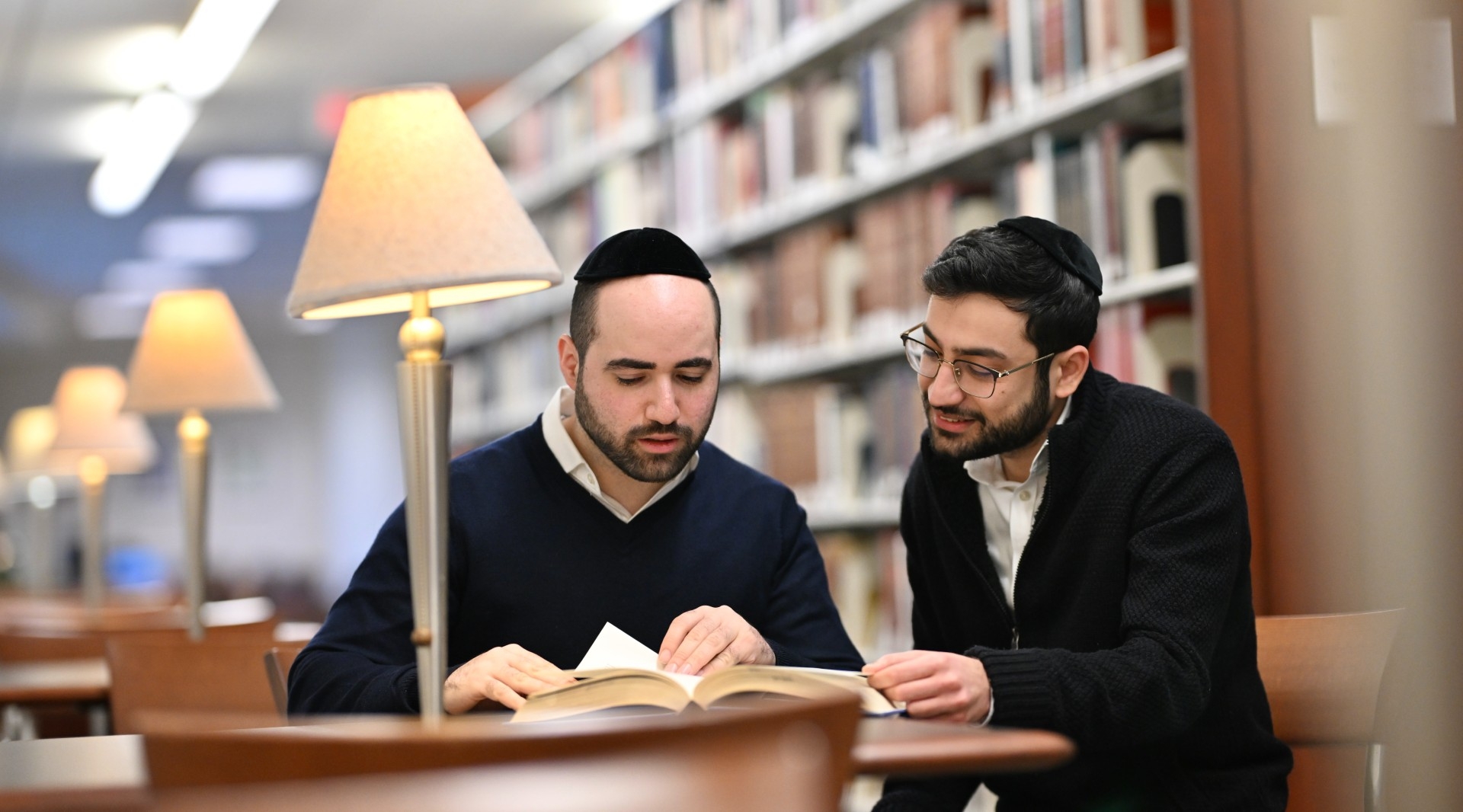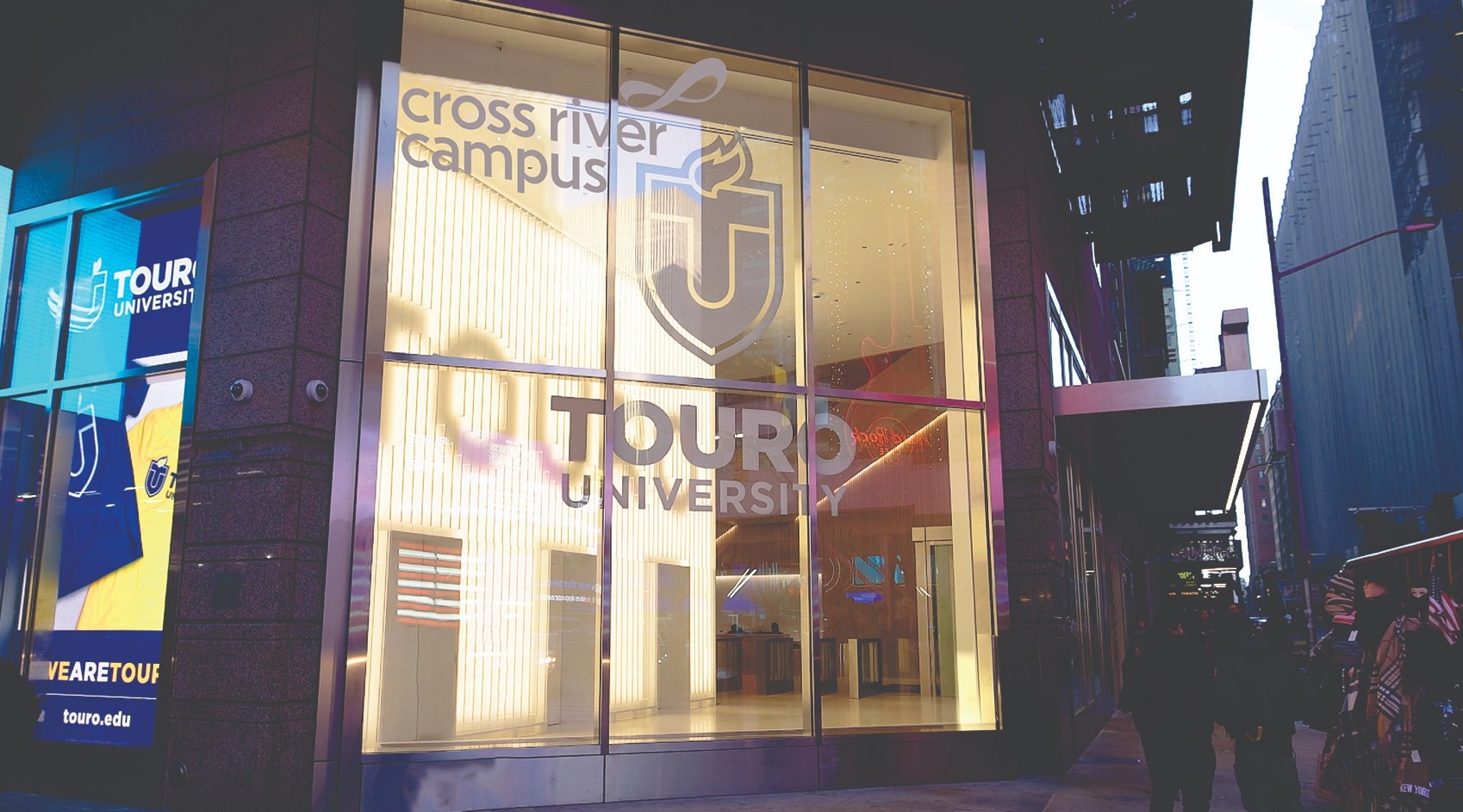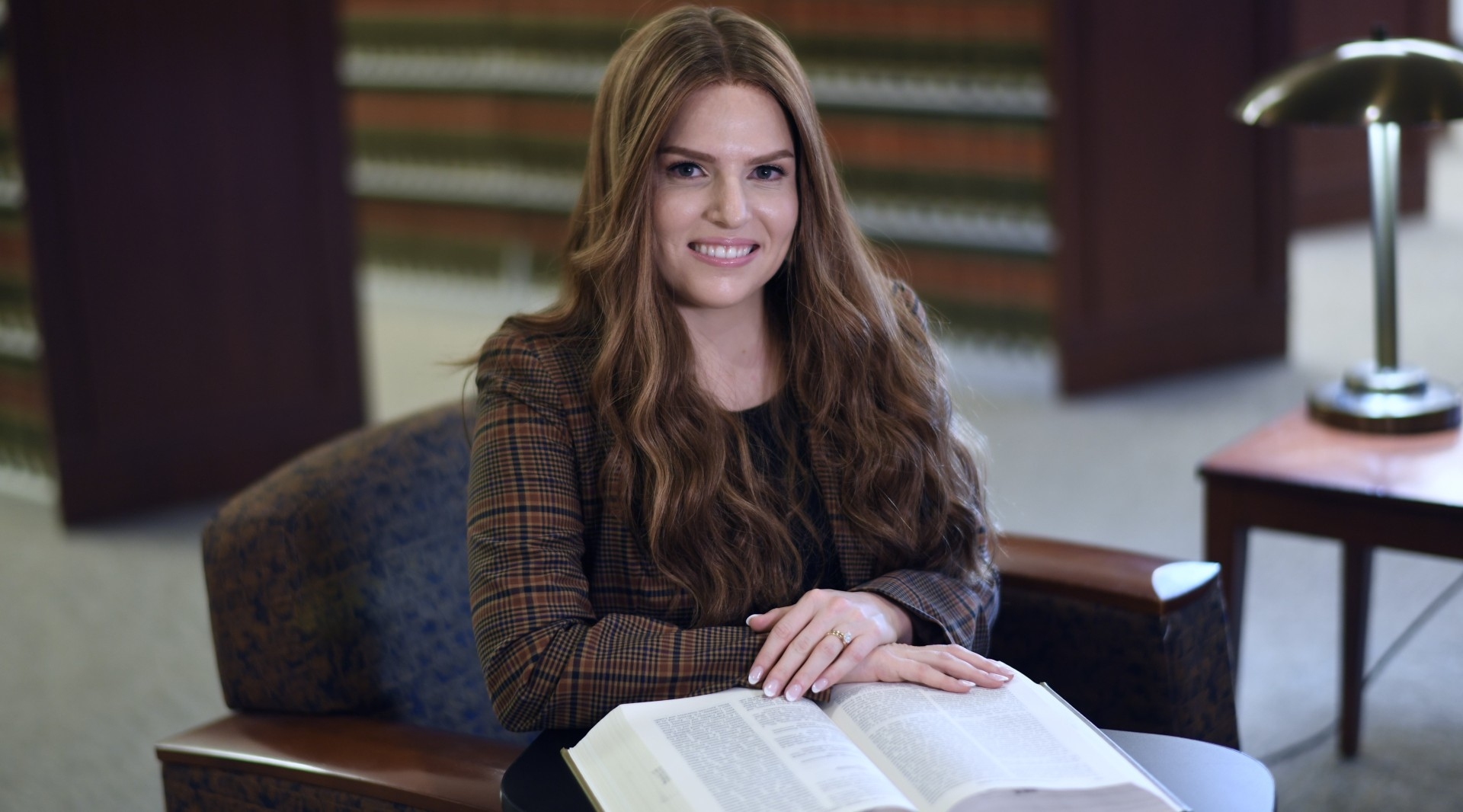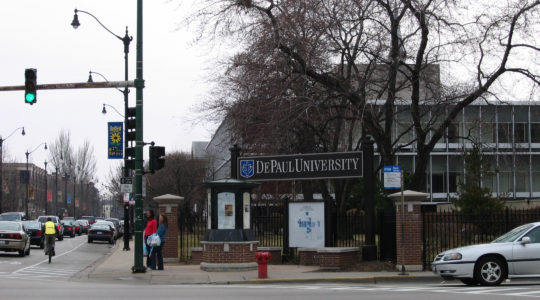Shira Schneeweiss was working as a paralegal when she decided she needed more from her career.
During Covid, Schneeweiss had moved from Canada to New York and found a paralegal job at a law firm on Long Island. She hadn’t planned on going into law but found that she enjoyed her work and decided to study for the LSAT to pursue a law degree. The problem was she couldn’t afford to give up her job and take off three years to go to law school full time.
“I knew I wouldn’t be able to take off work and study full-time, but it was important to me to boost my career and work as an attorney,” Schneeweiss said. “Then I heard about Touro’s FlexTime program.”
The hybrid FlexTime JD program offered at Touro Law Center is a unique course of study that allows students to complete their courses on a flexible schedule without full-time classes.
The four-year program requires in-person class attendance just once a week, on Sundays. Students can complete the rest of their coursework — about 20 hours weekly — on their own time, asynchronously. After four years, students are qualified to sit for the bar exam. FlexTime JD is the only accredited law degree program of its kind with approval from the American Bar Association (ABA) and the New York State Education Department.
As with many programs at Touro, the program was designed with the needs of observant Jews in mind, and over 95% of students receive scholarships or some other form of financial support.
“Our program is designed to deal with the challenges that would prevent someone from going to a full-time program,” said Elena Langan, dean and professor of law at Touro Law Center. “It’s the only program of its kind in the country with classes on Sunday only, so it’s extremely flexible and very friendly towards the religious community.”
Touro University was founded in 1970 to offer college degrees to observant Jews seeking a place to study without having to compromise their religious principles. Today the university serves over 19,000 students across 35 schools in four countries, offering degrees in diverse fields ranging from liberal arts and Jewish studies to health sciences, technology, and business.
Touro University has offered a law degree since 1980, when it opened its Jacob D. Fuchsberg Law Center on Long Island, and Touro launched its FlexTime JD program in 2018 at its Central Islip campus in Suffolk County. Next year will be the first that the FlexTime program will be available in Manhattan, at Touro’s new Cross River Campus located at 3 Times Square.

Joshua Bemshimon and Emanuel Yunayev, left to right, are third-year students in the FlexTime JD program at Touro’s campus in Central Islip, New York. (Dmitry Kalinin / Touro)
“With the increasing popularity of the program, we started pushing to open another branch at Touro’s new Times Square location,” Langan said. “We’re now recruiting students for fall 2024, and there is already a strong response from both religious and secular applicants.”
The centrally located Manhattan campus offers glatt kosher food, does not hold any classes on Shabbat or Jewish holidays, and offers other accommodations for students’ religious needs. It’s also located in the center of the world’s most sophisticated legal market, enabling the law school to tap some of New York’s top lawyers as adjunct faculty and offer students opportunities for internships and pro bono assignments at some of the world’s best law firms. The law school’s board of advisors, comprised of legal practitioners from the public and private sectors, offers as mentors to students.
Touro Law is also home to the Jewish Law Institute, a center for the study and teaching of Jewish law that explores connections between Jewish legal traditions and American legal scholarship.
In the FlexTime JD Program, students must be in attendance on Sundays during the semester. It’s the lowest in-person class attendance requirement of any JD program in New York, according to Touro.
“There are programs out there that are two days — Saturday and Sunday — but those don’t work for the religious community,” Langan noted. “There are other programs that are completely online, but if you do those, you can’t sit for the New York Bar without applying for and receiving a waiver from the New York Court of Appeals. This is a program created for the religious community that meets all of the requirements to sit for the bar in New York and other states.”
The convenience makes it a good option for people in non-law careers to add to their skills, and attracts not just observant Jewish students but students of all kinds.
Abe Kopolovich, a 43-year-old physical therapist with 20 years of experience in a private practice in Brooklyn, decided to earn a law degree after obtaining two previous degrees at Touro.
“I always had a keen interest in the law, and my experience in healthcare affords me an advantage in seeing legal challenges in healthcare from a different angle,” Kopolovich said. “I am very excited about integrating the two areas of study and helping patients and clients in the future.”
Kopolovich’s son also went to Touro, to pursue an undergraduate degree in physical therapy.
As for his experience in the JD program, Kopolovich said, “The professors are great, the program is very flexible, and the deans are very good at taking care of any issues that come up.”
Touro Law offers internships with leading law firms, courts, and nonprofit organizations in and around New York City. The program includes practical guidance and lectures and presentations by leaders in their fields. Graduates of the FlexTime program can earn their degrees in four years, or three-and-a-half years if they attend summer classes.

Touro University opened its new flagship Cross River Campus at Times Square in midtown Manhattan in April 2023. (Dmitry Kalinin / Touro)
Now in her second semester, Schneeweiss says the FlexTime program fits her lifestyle. She spends all day Sunday in class, from 8:30 AM to 5:30 PM, and does the rest of her work asynchronously, watching online lectures and doing the readings and assignments on her own schedule.
“I started just a week after I got married, so I fell behind in the beginning,” Schneeweiss acknowledged. “But everyone has very busy lives outside of school.”
Among her classmates are students with demanding full-time careers, including doctors and a police officer, as well as mothers looking to enhance their careers. About 160 students are currently enrolled in the four-year program at Central Islip. Only a few are observant Jews. The Manhattan-based program starting next year expects to draw from the city’s observant Jewish community.
Touro accepts students with Bachelor of Talmudic Law (BTL) degrees, and works to accommodate men studying in kollel or yeshiva programs as well as women who have left the workforce to raise families.
Ultimately, Touro Law’s FlexTime JD program aims to accommodate the demands of students from all backgrounds, according to Langan.
“It’s a great program for anyone with a busy schedule to enhance your career,” Langan said. “We see a lot of individuals using the degree to move up in their current company or change positions. We also have students who already run businesses or work in banking, where knowledge of issues related to compliance and regulations can be very valuable.”
One other bonus, according to Langan: Students at Touro do not need to apply for scholarships. When they apply for admission at Touro, they’re automatically considered for scholarships, and students with exceptional academic performance can receive additional financial aid.
To learn more about Touro’s FlexTime JD Program, visit www.tourolaw.edu/flexjd.
JTA has documented Jewish history in real-time for over a century. Keep our journalism strong by joining us in supporting independent, award-winning reporting.
This story was sponsored by the Touro College and University System, which supports Jewish continuity and community while serving a diverse population of over 19,000 students across 30 schools. This article was produced by JTA’s native content team.
More from Touro University





